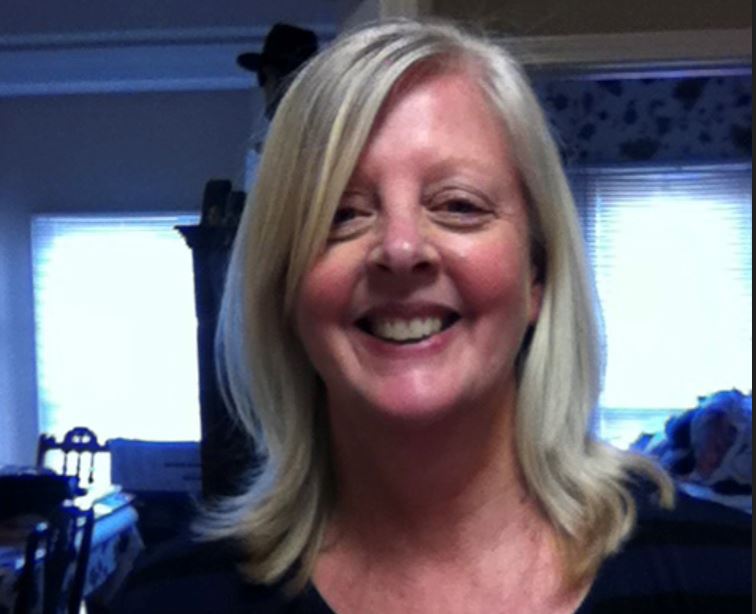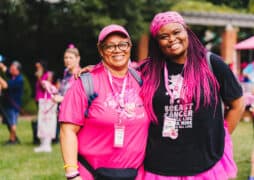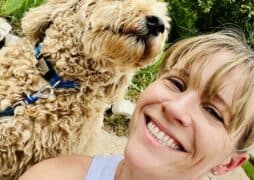
Cherie Hodges was diagnosed with breast cancer in 2022, the same type her mother had in the 1980s. This is Cherie’s story in her own words.
I never missed a mammogram until 2019. I moved that year and time slipped away, and I failed to schedule my mammogram.
Then 2020 came along and the pandemic hit the world and I missed my mammogram again that year. When 2021 rolled around, I told myself to get it on the schedule. Toward the end of the year, I started noticing my right breast was beginning to look different than my left breast. I knew this was a sign of trouble, so I got on the phone and scheduled a mammogram.
About a week after my appointment, the doctor’s office called me. They found a shadow on my right breast, and they wanted to schedule an ultrasound. I was immediately scared.
Exactly one month later, I got the ultrasound and the report, and I could see this creature invading my body on the film. I’m a veterinarian, so when I saw that monster, I knew it was going to be malignant.
It was a month before I was able to have the biopsy. I stressed the whole time, worried this thing in me was metastasizing (spreading). The biopsy went well, and the doctor was able to get a fairly large sample.
At my follow-up a week later, I learned the mass was malignant. I had invasive ductal carcinoma, HER2 negative and estrogen positive, but the cancer didn’t appear to have traveled to my lymph nodes or vasculature system yet. My doctor told me this was all good news.
I decided to fully remove the beast, so 12 weeks after my diagnosis, I scheduled a double mastectomy with lymph node biopsy. My focus was getting to my surgery date and trying not to worry about metastasis.
My surgery was on a Monday. My family and my best friend were in town because my son graduated from college the weekend before, so we celebrated his success Friday, Saturday and Sunday.
On surgery day, I don’t remember much past meeting the anesthesiologist assistant, when she injected drugs into my catheter. I don’t remember waking in the recovery room. I do remember being taken to my hospital room and my daughter waiting there for me to arrive.
The week following surgery involved dealing with the pain and those annoying and painful drains. I tried to be diligent about my chest and arm exercises, in addition to my breathing exercises. As the week went on, the drains became more of challenge. They aren’t fun. They’re painful. Pain medicine and sleep were my best friends, and it was important to rest, drink a lot of water and eat healthy.
My mom is a 35-year breast cancer survivor who will be 91 in August. I have the same type of breast cancer she had back in the 1980s. She had a double mastectomy and has survived with no issues. I’m praying for a similar outcome.
Is it time for your screening? From answeringquestions about early detection through breast self-awareness or when to begin screening to providing support and local screening and diagnostic resources, Komen navigators are here to help. Contact the Breast Care Helpline and get your questions answered.
The Helpline provides free support services and resource referrals toanyone who has questions or concerns about breast health, including people diagnosed with breast cancer and their families. Call 877-465-6636 or email helpline@komen.org Monday – Thursday 9 a.m. EST – 7 p.m. EST and Friday 9:00 a.m. – 6:00 p.m. EST. Se habla español.
Statements and opinions expressed are that of the individual and do not express the views or opinions of Susan G. Komen. This information is being provided for educational purposes only and is not to be construed as medical advice. Persons with breast cancer should consult their healthcare provider with specific questions or concerns about their treatment.



